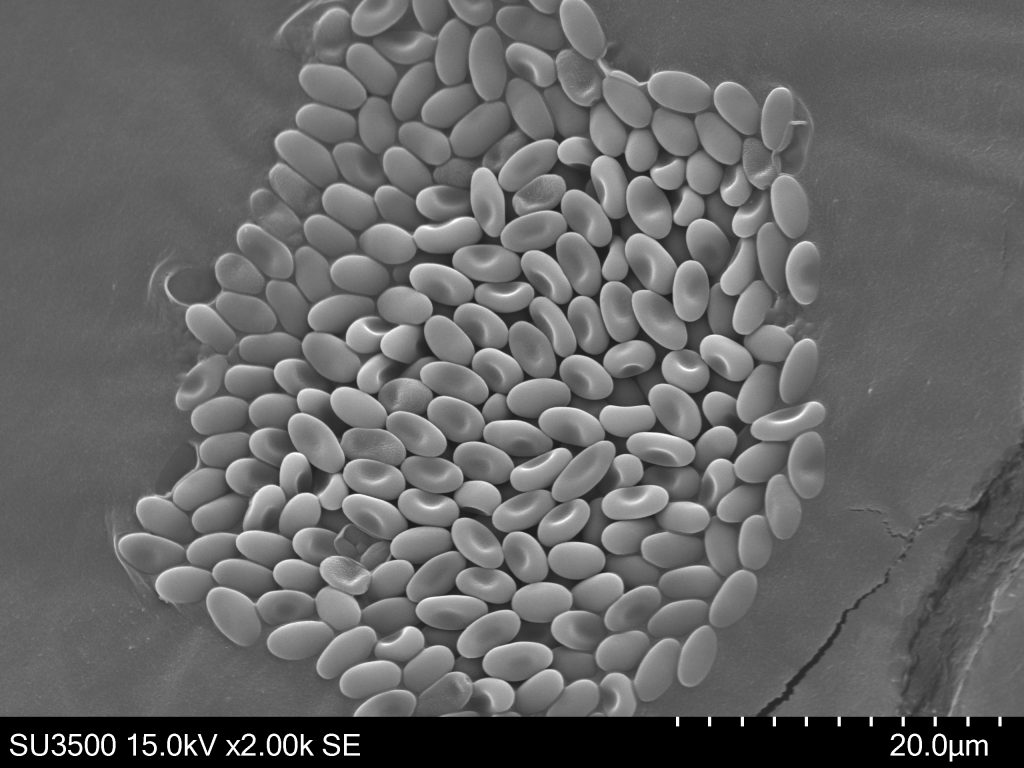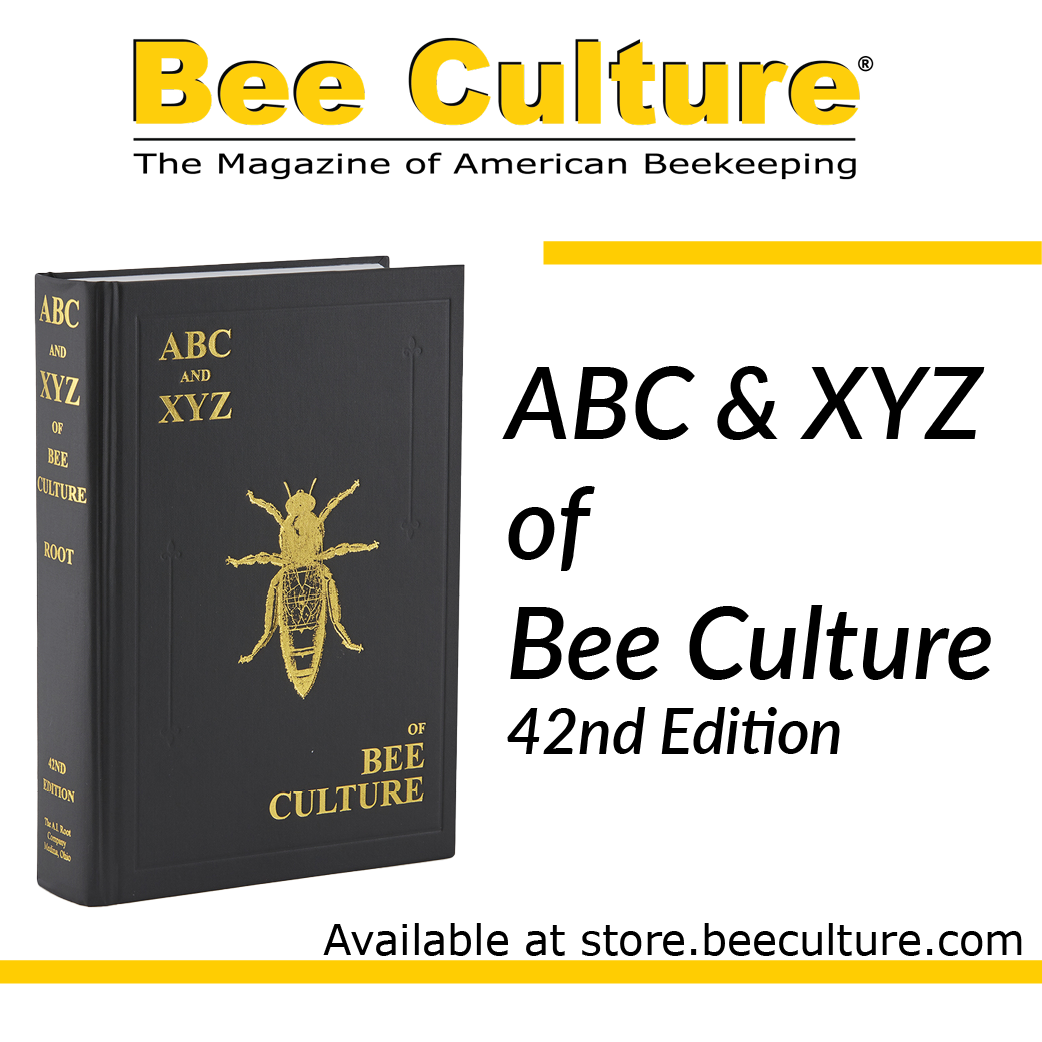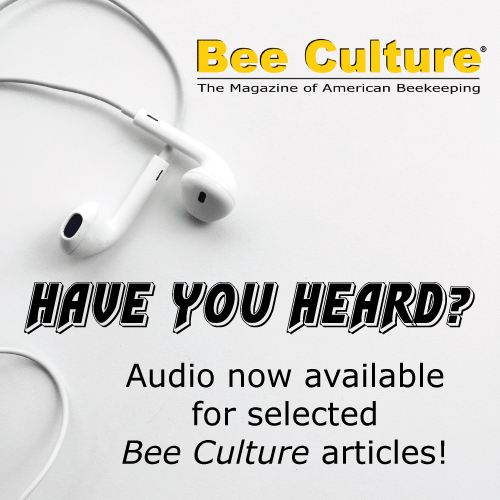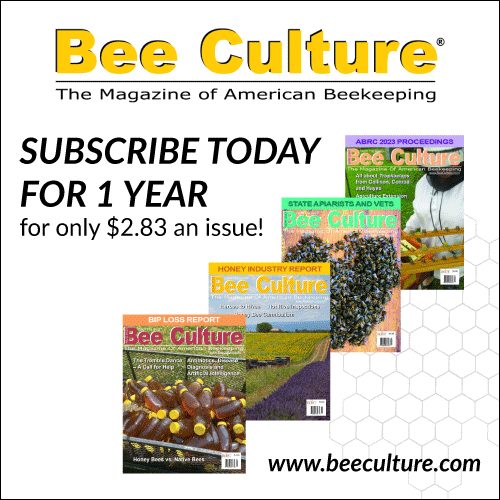Click Here if you listened. We’re trying to gauge interest so only one question is required; however, there is a spot for feedback!
Read along below!
Found in Translation
Gut Microbes Help Bees Survive the Season
By: Jay Evans, USDA Beltsville Bee Lab
It will surprise most Bee Culture readers that microbes come in flavors that can be good, bad or indifferent to the health of their honey bee hosts. As we approach Fall, it is tempting to focus on the microbes on the good side and try to find out how to feed them for bee health prior to Winter. As someone who studies honey bee disease, I can’t help but focus on the good microbes that might interfere with agents of harm lurking in our beehives.
Kirk Anderson and colleagues in the USDA’s Tucson Carl Hayden Bee Research Laboratory have been exploring the impacts of gut microbes on bee health for a decade now. In past work, they showed how these microbes are beneficial in the guts of bees but generally ‘don’t’ help in the processing of pollen stored as bee bread. They have also shown how queens and workers differ greatly in the microbes they harbor and the impacts of bee contact on moving microbes around (see Anderson’s ‘Google Scholar’ profile for lists of his papers on these topics; https://scholar.google.com/citations?user=JiEFFkIAAAAJ&hl=en&oi=ao).
They have also explored how bees suffer mortality when the delicate microbial balance is upset. Recently, they have investigated honey bee overwintering, testing for the right mixes of nutrition and temperature that improve the odds of colony survival (hint: cold is good, to a certain degree). In a paper this past year, they describe how the gut microbes of bees react before and during Winter, building the case that microbes are critical for overwintering success (Anderson, K.E.; Maes, P. Social microbiota and social gland gene expression of worker honey bees by age and climate. Scientific Reports 2022, 12, 10690, doi:10.1038/s41598-022-14442-0).
They also show that the overwintering environment can favor certain microbes that are less helpful for bee health. Specifically, bee colonies overwintered in a warm environment started with the typical population of gut bacteria but that population broke bad in the end, notably thanks to overgrowth (these were NOT found in bees) as well as several types which ARE known to decrease bee health. Just what it is about warmer Winter environments that favors an odd, and apparently harmful, bacterial group is not known, and solving this will be key in future work aimed at prepping bees for current or future Winter climates.
More generally, disease agents are opportunists; taking advantage of their victims when something else is out of whack. These opportunities can arise from stressors in the environment, poor genetics or inadequate nutrition. Opportunities might also arise when populations of good bacteria are somehow absent. There are a myriad of ways that such ‘good’ microbes could help bees in the face of disease, from providing a physical layer on the gut wall that frustrates pathogens, to improving nutrient transfer or stimulating bee immunity.
Finally, gut microbes might directly attack the bad actors. Studies showing increased honey bee disease following heavy antibiotic treatments provide ample evidence for the roles of natural bee bacteria. In one such study, led by Jiang Hong Li and my USDA colleague Judy Chen (Li, J.H.; Evans, J.D.; Li, W.F.; Zhao, Y.Z.; DeGrandi-Hoffman, G.; Huang, S.K.; Li, Z.G.; Hamilton, M.; Chen, Y.P. New evidence showing that the destruction of gut bacteria by antibiotic treatment could increase the honey bee’s vulnerability to Nosema infection. PloS one 2017, 12, e0187505, doi:10.1371/journal.pone.0187505). Gut microbes were shown to help bees resist nosema disease. A cleansing of gut bacteria by an intensive antibiotic regime resulted in shorter lifespans overall, and increased the impacts of nosema exposure on longevity.
Sean Leonard and colleagues, in the University of Texas laboratory of Nancy Moran, showed that a human assist can further sharpen the impacts of natural gut microbes on bee parasites. Specifically, they engineered (in the laboratory) a common ‘good’ bacterium of bees so that it targeted challenges as distinct as Varroa mites and Deformed wing virus (Leonard, S.P.; Powell, J.E.; Perutka, J.; Geng, P.; Heckmann, L.C.; Horak, R.D.; Davies, B.W.; Ellington, A.D.; Barrick, J.E.; Moran, N.A. Engineered symbionts activate honey bee immunity and limit pathogens. Science 2020, 367, 573-576, doi:10.1126/science.aax9039).

Nosema. Credit: Qiang Huang
Work this year based on the same strategy (led by Qiang Huang from Jiangxi University, working in Moran’s lab) showed resident bacteria could be altered to successfully target nosema disease (Huang, Q.; Lariviere, P.J.; Powell, J.E.; Moran, N.A. Engineered gut symbiont inhibits microsporidian parasite and improves honey bee survival. Proceedings of the National Academy of Sciences 2023, 120, e2220922120, doi:10.1073/pnas.2220922120). Bees with the engineered bacteria both lived significantly longer and had far fewer nosema spores to pass on to their nestmates. Interestingly, bees fed the gut bacterium alone, and the bacterium with a nonspecific (not targeting nosema), modification also showed signs of reducing disease impacts, supporting the evidence that the bacterium itself is also a friend to bees.
Short of this high-tech solution, are there ways that beekeepers can help nurture the natural gut bacteria found in their beehives? If you supplement your bees, a recent paper by Elijah Powell and others in Moran’s group suggests that pollen-based supplements tend to lead to a more balanced ‘core’ set of bacteria in the bee gut, possibly decreasing the threats from at least one bacterial pathogen of adult bees (Powell JE, Lau P, Rangel J, Arnott R, De Jong T, Moran NA (2023) The microbiome and gene expression of honey bee workers are affected by a diet containing pollen substitutes. PLoS ONE 18(5): e0286070. https://doi.org/10.1371/journal.pone.0286070). I know there are many colony supplements available and I don’t claim this makes a pollen-based supplement better for bees overall than supplements with a different protein source (nor, of course, does this represent any formal endorsement of one type of bee feed over another). Still, it is interesting to contemplate how particular supplements affect not just bees but the hitchhiking microbes that have adapted to life in their guts.
One thing is clear from these diverse studies. While many of us focus on the microbes whose effects are damaging to bee colonies, most hive microbes are neutral or even beneficial to their bee hosts in Summer and Winter. Bees have been harnessing this power for millennia, and we would do well to help them sustain the right mix of gut partners.









